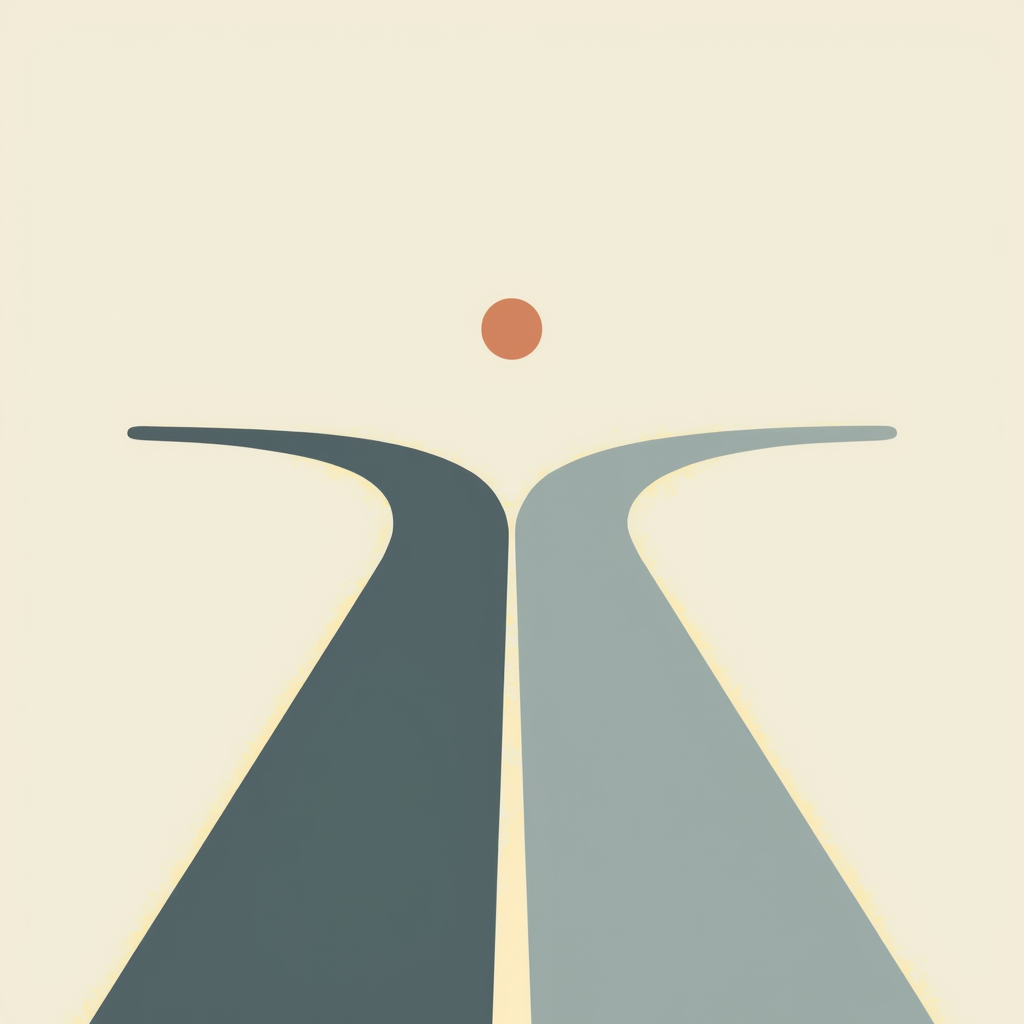The case for fast decisions

We as humans are confronted with decisions all day, every day. Most of them are really inconsequential ("what pizza place should I order from?"), while others can can affect the trajectory of your entire life ("should I really take that job offer?").
We're not really trained to make decisions during our education. And making decisions can be really uncomfortable, especially because we rarely have the full picture.
Making a decision may reduce opportunity in the short-term, but it is crucial for opportunity in the long-term. My experience is that there are few things as crippling as indecision. In a way, indecision is making a decision and avoiding responsibility for it. Unfortunately, most environments do not incentivize taking risks. Taking risk and failing is reprimanded or punished.
Fast decisions are an asset in their own right
A decision's rate of improvement flattens out very quickly with time. This has made me place a high value in decision speed. It is rarely the case that a decision is unrectifiable. It is the spirit of the agile mindset to fail quickly and course correct if necessary - the exception is of course if you are either deciding something with a high magnitude of impact or very low reversibility. We all have the friend who is trying to solve relativity when ordering food in the restaurant, when in reality the decision is very inconsequential.
The only real benefit of more time is the opportunity to gather more information or more time to think. Who would you ask, and what is the benefit of that extra information? By how much would your decision improve with that input? What would need to happen for you to change your mind?
Ask yourself what your decision right now would be if you were forced to decide. I would even go as far to say that twice as many decisions with half the precision are better. At least for us regular Joes where not every decision is a high stakes one. "Question askers" and the "let's have another meeting"-folks want to reduce their uncertainty to zero. That is not a feasible mindset.
Accept the burden of uncertainty
I have made my peace with the uncertainty decisions are forged in. Uncertainty is caused on the one hand by luck (randomness exists, and we do not control the actions of others) and by the fact that there is a veil of ignorance in every decision. We are not omniscient and new information may arise with time. The remedy to this is be wary of mental traps such as the sunk cost fallacy and an openness to changing your mind.
Going fast in uncertainty undoubtedly increases the chances of error and getting an outcome that is poor. How well can you stomache a poor outcome? If the worst possible scenario has only small ramifications, then you have found the prime example for a case of fast decision-making being. And if your decision is reversible you should go fast too, since you can always pivot.
With incomplete information comes a variety of opinions. I try very hard to foster a culture of an obligation to dissent from all team members but to disagree and commit when the decision is made.
Thinking in bets
Immanuel Kant postulates that the willingness to bet is a good indicator of your convictions. It's a mental game I like to play with myself. How much would I bet on the decision I am about to make? A bet is essentially the monetary value of your opinion. This is what is done in poker: Are you willing to bet the farm and go all-in on your belief that you have the best hand?
When faced with multiple options I like to structure a problem MECE (I'll elaborate on this some other time) and assign probabilities to various outcomes. I do this because thinking in bets does not mean we are in Las Vegas casino playing the slots. We're taking calculated bets weighing risks, benefits and the probability of their occurence. Your certainty may increase if you wait longer, but with time and rising certainty the impact of a perhaps initially bold move starts waning.
There are many lessons about decision making to be drawn from poker. Losing a important hand - especially when the odds were in my favor - is one of the most tilting experiences you can endure. And it is in these tilted moments where I really feel emotion seeping into and clouding your decision making on following hands. You are not a robot - It is normal to feel emotion, but it is important to do your best in seperating them from your decisions. Poker is really fascinating because it forces you to think about your thinking and decisions in a metacognitive way and reverse engineer your belief (the basis of your decision) to the nucleus.
A bad outcome doesn't have to be a bad decision
Do not rate the quality of the decision by it's outcome. The action must be distinquished from the outcome. Things may go awry, but the initial decision may still have been the correct one with given information. We are resulting everywhere all the time. You are resulting when you look over to your neighbor's meal in the restaurant with envy and wishing you had made a different choice. You are resulting when you regret playing a poker hand and losing, even when the odds were in your favor.
As Annie Duke puts it: “What makes a decision great is not that it has a great outcome. A great decision is the result of a good process, and that process must include an attempt to accurately represent our own state of knowledge.”
Consider your winning outs and raise the variance when the odds are stacked against you
You don't always have the option to walk away from the table as you do in poker. Sometimes you must play to the end and deal with unfavorable odds. But even if the odds are unfavorable, you must play to your (sometimes miniscule) outs. When I play Risk in my group of friends I always observe the one guys who loses a creeping loss rather then taking his small long-shot opening when it presents itself.
Frameworks and decision making tactics
Being aware of the decision science behind decisions and common fallacies is a topic for an entire book. But there are several frameworks and mental models I use when pondering options.
- Occam's razor: States that the simpler explanation is the more likely explanation than the more conveluted explanation. That's logical, because a solution leaning on less assumptions is more likely to come to pass than one based on many. They are simpler, and simple plans are also the easiest to explain and evangelize in an organization.
- OODA loop: When the going gets tough - something unexpected comes up and things get suddenly stressful - my mind jumps automatically to OODA loops, which is a mental model originating from the American military. It intends to help stay focused and calm in dynamic situations so you don't make hasty decisions. Panic has never served anyone or contributed to a good outcome. The model defines 4 phases which must always be gone through in linear order. Phase 1 is observing your surroundings and being situationally aware - what is happening around you? Phase 2 is orienting yourself and analyzing occurences and threats. It helps suffocate the panic, and defines your options. Phases 3 and 4 are about making a decison and acting on it. You can never skip one of these phases. It's a mental model I think of in an almost Pawlow'sch manner when a fire starts.
- 10/10/10 Rule: Asking yourself how you will feel with your decision 10 minutes, 10 months and 10 years - I also think about 10 days. It helps you weigh the short- and long-term consequences of a decision.
- Second Order Thinking: In a similar vein to the 10/10/10 rule, second order thinking aims to gauge longer term and perhaps hidden consequences of actions. What non-immediate consequences will arise from decision?
An history example from a history buff: Mao Zedong ordered his people to kill all sparrows in China, because sparrows consume rice seeds and their elimination would enable a more plentiful harvest. Chinese sparrows almost became extinct - but the unintended consequence was a skyrocketing locust population which caused harvest yields to drop viciously. This is seen as one of the main causes for the Great Chinese Famine, which was responsible for killing up to 50 million people. China ended up importing sparrows to rebalance the ecosystem. Mao did not consider second order consequences. - Galilean Relativity: Reminds you that our perception is limited, and that outside counsel can give a fresh perspective. Galileo Galilei was often asked - as a retort to his "the earth orbits the sun" theory - why we do not notice the earth moving when we are moving at 1525 feet per second. The answer is that the earth is moving at the same constant velocity and we don't notice. But the quintessence for us is that we must remain open to new perspectives as their is a inherent constriction of your perspective when you are inside a system. An outsider can offer great insight to you. Wikipedia illustrates Galileo's good analogy to the topic.
There are many more, but I'll leave at that for now.
Reflecting on past decisions
I've written before about how accountability is core to my person. To keep track and remain accountable for my decisions (both good and bad), I keep a list of the decision that I am interested in reviewing. And there are lot. I make many decisions a day - and many of them by proxy on the basis of counsel I receive from my team. As product manager, you are the bearer of what your team delivers - you are ultimate owner of your team's outcome, even when you may think that it is not "your fault".
It's already a challenge to rate one's own decision after the fact (hindsight bias), but even harder to assess decisions of others (even close team members). It's virtually impossible to replenish the entire mental state and context of the decision of the time that it was made. No one sets out to make a wrong choice, and it requires empathy to put yourself in different shoes and understand the rationale. We often experience this memory creep with our own decisions, thinking information we did not have yet was available at decision time.
Generally I see a pattern of too many inexperienced people making decisions guided by intuition too quickly. I too have much to learn, which is why I try so hard to systemize my decisions. Intuition is acquired through experience, and you should only fully trust your intuition if you have good experience.
We're living in a ever-changing world. With complexity some will feel the need to wing it, while other will want to continue collecting endless amounts of data to refine their decision to perfection. You need to escape the analysis loop.
